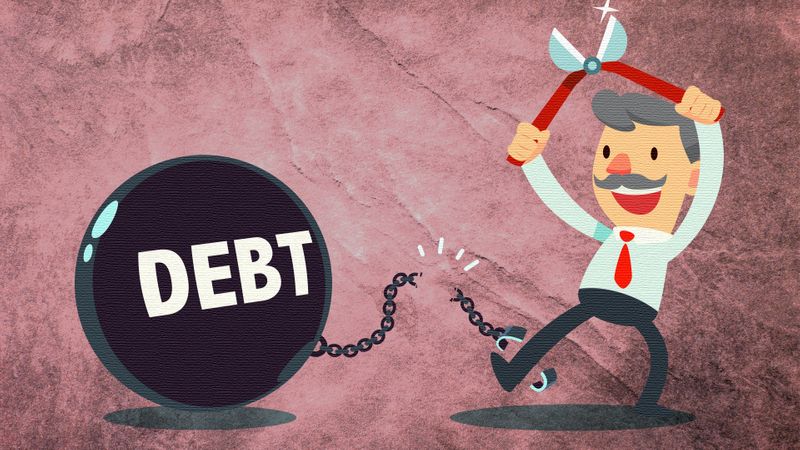
Dubai: If you have been facing challenges with credit card debt for long, then you may have received some offers from companies that claim they can settle your debt.
“Global statistics indicate that the average settlement amounts to 48 per cent of what you originally owed, but that number is a bit skewed,” noted Dubai-based debt restructuring and financial planning consultant Rupesh Naish.
“If your debts are still with the original creditor, settlement amounts tend to be much higher. Settlements tend to be higher with original creditors because they want to recoup as much of their loss as possible.”
However, with a debt collector, they purchased your debt from the original creditor for a small percentage of what you actually owed. So essentially, they can accept a lower settlement amount and still make a profit.
If your debts are still with the original creditor, settlement amounts tend to be much higher
Can debt settlement firms really cut your debt in half?
Like with everything else that involves your money, the blanket rule is if it looks too good to be true it probably is. And debt settlement firms are no exception. So let’s discover what those companies who talk about debt actually don’t want you to know about them.
Realistically, it’s very doubtful that all debt settlement firms can cut your debt in half. On paper they could show you that they have wiped out 50 per cent of your debt, but a closer look will reveal a house of cards,” added Naish.
“First, these agencies charge fees up front to help you out. If you have Dh10,000 is debt, you will be paying Dh1,500 up front to get your debt cut in half. And if you take Dh1,500 from Dh5,000, that leaves Dh3,500. By my calculations, that’s not 50 per cent of Dh10,000.”

Do debt settlement agencies charge debtors other fees?
Debt settlement companies charge a fee, generally 15-25 per cent of the debt the company is settling. While consumers worldwide who enrol in debt settlement end up paying about 50 per cent of what they initially owed on their debt, they also paid fees that cut into their savings.
“That initial, up-front fee is just the beginning. These agencies also charge you monthly fees to ‘handle’ your accounts. Which is odd, considering that after the debt negotiations have taken place, there’s very little to handle at all,” said Rajesh Markara, an Abu Dhabi-based debt restructuring advisor.
However, when Markara was asked why most debt settlement agencies were only interested in helping debtors or loan defaulters with Dh100,000 or more in debt, he said: “That’s simple: It’s all about cash.”
Here’s an illustration: 15 per cent of Dh100,000, up front, is Dh15,000. That is the minimum amount most of these agencies want from you before they start work, and more is better. “If it falls below the threshold, well, then it becomes a smaller pay day for them,” added Markara.
That initial, up-front fee is just the beginning. These agencies also charge you monthly fees to ‘handle’ your accounts
Will the actions of debt settlement impact your credit score?
Both Naish and Markara agreed that the actions of debt settlement can impact your credit score.
“While debt settlement procedures affect your credit health, the biggest issue seems to be payment of the new ‘settled’ debts. It can take many months for all of this paperwork to go through,” said Naish.
“And while you’re sitting back thinking your debt settlement agency is handling it all, you’re racking up late fees and missed-payment penalties. Before you know it, six months have gone by and you’re in worse shape that you were when you first started talking to the miracle-workers.”
• Talk to your creditors yourself. They will probably not excuse any debt, but they are open to helping you out. They’d rather have some money coming in from you each month than none at all. So talk about lowering rates and forgiving late fees. Most of the time, they’ll be able to help.
• Talk to your bank. Many banks are willing to talk to you about the financial options you have. They could offer you a very good loan to consolidate your debts. Again, do your research before speaking with any expert.
• Build a budget. If you don’t have one, you need one. You can find often find places to trim some cash. Even if it’s just a few dirhams here and there, it can add up. Applying that to your debts will help you pay them down more quickly.
Key takeaways
Most debts that go to collection agencies are unsecured debts, such as credit card or medical debt. If the creditor is flexible, it might be willing to accept a settlement below the full amount to avoid spending months futilely trying to collect the whole thing.
If you have some cash to offer a payoff of the debt, or you want to change the payment terms so they're more favourable to you, consider negotiating with the collector. If you have money available and not a lot of unsecured debts, settling them for a lump sum or repaying them through a payment plan will help.
“It's also important to review your debt priorities before you start negotiations. If you don't have the cash to make a realistic lump-sum offer or to propose a payment plan, don't even talk to the collector,” added Naish.

“This is because you might make promises you can't keep or give the agency more information than it already has. Or, worse, you could say something that turns an old time-barred debt into a brand-new debt.”
While a creditor typically will agree to accept 40 per cent to 50 per cent of the debt you owe, and it could be as much as 80 per cent, Markara cautioned that this so-called assurance varies starkly depending on your debt and whether you're dealing with a debt collector or the original creditor.
“In most cases, the costs of taking on a debt settlement agency eat into the promise of halving debts. In either case, your first lump-sum offer should be well below the 40 per cent to 50 per cent range to provide some room for negotiation,” he added.











